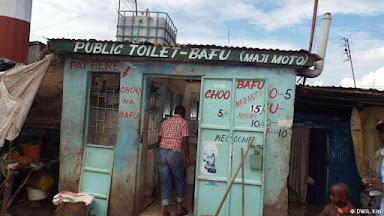Introduction- How does water, gender and development link in Africa's context?
About three quarters of households in sub-Saharan Africa fetch water from a source away from their home and 50% to 85% of the time, women are responsible for this task.
The statistics makes you wonder: Why is water so far away from homes? What role do women play when it comes to water and how does this affect development itself?
Water in Africa
Africa may initially appear abundant with water resources with large river basins of the Nile, Congo or Niger, yet it has the lowest proportion of people with access to safe water globally. Access to safely managed water by people is entirely dependent on the distribution, infrastructure and availability of water supply, both in urban and rural areas. Around 75% of water supply in Africa is taken from groundwater stores, pumped from boreholes or springs because it is available across landscapes.
This link between social systems and resources is often described as Human Ecology and plays a big role in addressing development challenges. Legal bodies such as the UN highlight that water is a necessary and sufficient condition for sustainable development and human wellbeing. We are still far from achieving SDG goal 6 on gender equality and goal 5 on equitable water access. Despite increasing legal recognition of water as a right, many African states fail at supplying and distributing it. International organisations have a huge influence on water infrastructure and supply, which can link to notions of neo-colonialism and development. Therefore, water in itself is key to understanding development in Africa.
Gender
Following the 2012 World Development Report (WDR) definition, gender refers to the "social, behavioural, and cultural attributes, expectations, and norms associated with being a woman or a man". By unpacking these norms and expectations of gender relations and power imbalances, we can then apply this to our understanding of access to resources, as well as social and economic development of women. Water related issues such as sanitation, drinking or agriculture affect women disproportionately to men, critically affecting their health, as well as their right to exercise their potential. Access to water is a basic human right, however, for women water is crucial in realising other rights, including the right to education, economic opportunity and health. Realising these rights provides women with choice - the choice to enact agency, to realise achievements and to have alternatives. Water for women is not only a means of survival but also a means of regaining agency and control over their lives.
How to write - a white western woman's perspective
When discussing Africa, it is important to note the vast differences between people, cultures, languages and even gender norms. In Wainaina's satirical commentary on 'How to Write About Africa', he illuminates the importance of providing agency to people. People in Africa are often portrayed as "empty inside", "helpless" with a lack of "depth". Considering this, I will ensure that the blogs throughout the term are do not conform to performative allyship of male and female experiences but provide actually informative and accurate depictions and commentaries of people's lives. It is often easy to miss experiences of specifically women, if one fails to look at the different ways in which women are described and marginalised. Therefore, I will ensure to not homogenise the experiences of Africa and African women and their identities.



Comments
Post a Comment